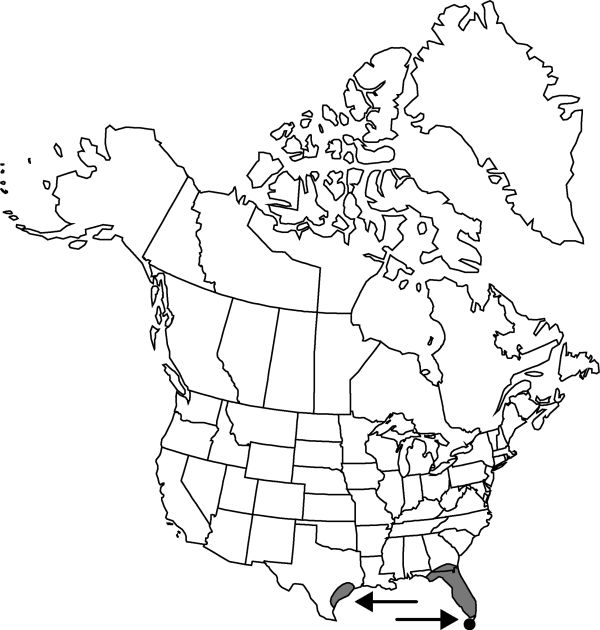Difference between revisions of "Gomphrena serrata"
Sp. Pl. 1: 224. 1753.
Common names: Arrasa con todo
Synonyms: Gomphrena decumbens Jacquin Gomphrena dispersa Standley
imported>Volume Importer |
imported>Volume Importer |
||
| Line 54: | Line 54: | ||
|publication year=1753 | |publication year=1753 | ||
|special status= | |special status= | ||
| − | |source xml=https:// | + | |source xml=https://bitbucket.org/aafc-mbb/fna-data-curation/src/2e0870ddd59836b60bcf96646a41e87ea5a5943a/coarse_grained_fna_xml/V4/V4_894.xml |
|genus=Gomphrena | |genus=Gomphrena | ||
|species=Gomphrena serrata | |species=Gomphrena serrata | ||
Latest revision as of 22:01, 5 November 2020
Plants perennial or annual, not cespitose, 1–10 dm; roots fibrous. Stems prostrate, procumbent, or decumbent, pilose. Leaves sessile or petiolate; petiole to 0.6 cm; blade green, obovate to oblong, 1.5–7.5 × 0.5–2.5 cm, apex rounded or obtuse, pilose-sericeous. Inflorescences: heads white tinged with pink or red, globose to short-cylindric, 9–13 mm diam.; bractlets with denticulate crests along keel. Flowers: tube densely lanate; perianth lobes white, narrowly oblong, 4–5 mm, apex attenuate. Utricles ovoid, 2.2 mm, apex acute. Seeds 1.2 mm.
Phenology: Flowering year-round.
Habitat: Lawns, roadsides, sandy open areas, woodlands, hammocks
Elevation: 0-1500 m
Distribution

Fla., Ga., Tex., Mexico, Central America, South America.
Discussion
Selected References
None.
Lower Taxa
None.